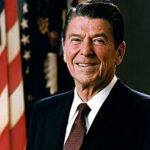The Strike Decision
The Professional Air Traffic Controllers Organization (PATCO) launched a nationwide strike on August 3, 1981. Reagan Air Traffic Controllers faced demands for better working conditions, higher wages, and reduced hours. The union represented 13,000 federal employees managing America’s airspace. Controllers worked under extreme stress with outdated equipment and mandatory overtime.
Reagan’s Swift Response
President Reagan issued an ultimatum within hours of the strike. ⚠️ Controllers had 48 hours to return to work or face termination. He declared the strike illegal under federal law prohibiting government employee strikes. Reagan followed through on his threat when most controllers refused to return.
Mass Terminations
Over 11,000 air traffic controllers lost their jobs permanently. 📊 The government banned them from federal employment for life. Reagan replaced striking workers with military controllers and new hires. The administration spent months rebuilding the air traffic control system. Flight delays and cancellations disrupted travel nationwide for years.
Impact:
Labor Movement Devastation
The Reagan Air Traffic Controllers firing sent shockwaves through organized labor. 📉 Union membership declined dramatically throughout the 1980s. Private sector employers adopted aggressive anti-union tactics. The decision emboldened corporations to resist collective bargaining. Strike activity plummeted to historic lows across all industries.
Economic Consequences
Air travel disruptions cost the economy billions of dollars. 💰 Airlines reduced flight schedules for several years. Tourism and business travel suffered significant impacts. The aviation industry required massive investments in training and equipment. Replacement controllers earned lower wages than their predecessors.
Long-term Political Effects
Reagan’s action redefined federal labor relations permanently. 🔥 The precedent justified harsh responses to public sector strikes. Conservative politicians praised the decision as restoring government authority. Labor unions lost political influence and bargaining power. The middle class faced stagnating wages and reduced workplace protections for decades.
